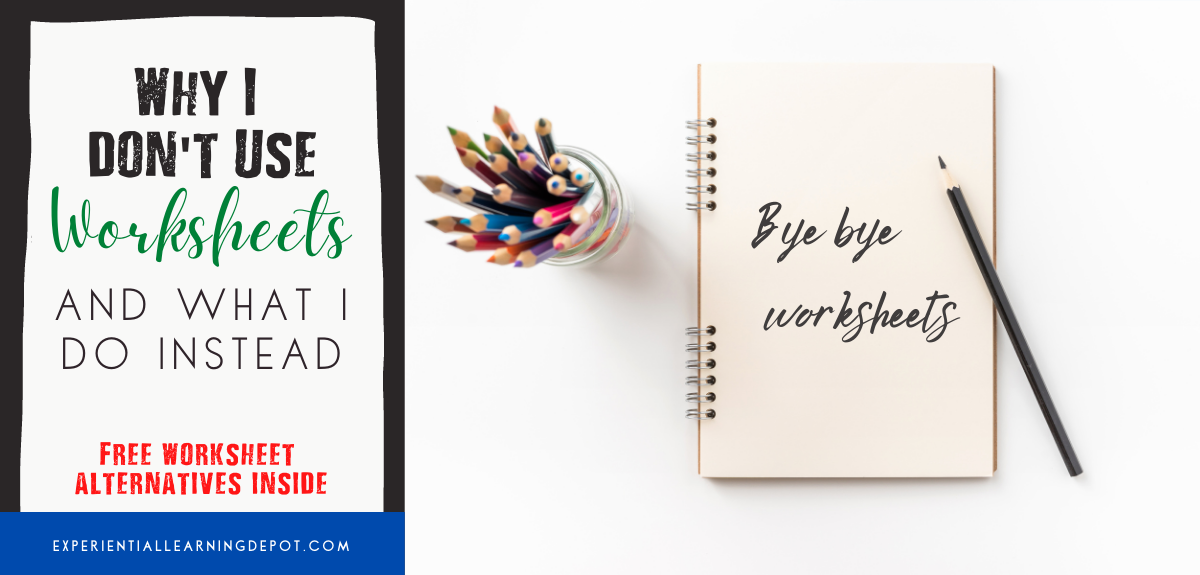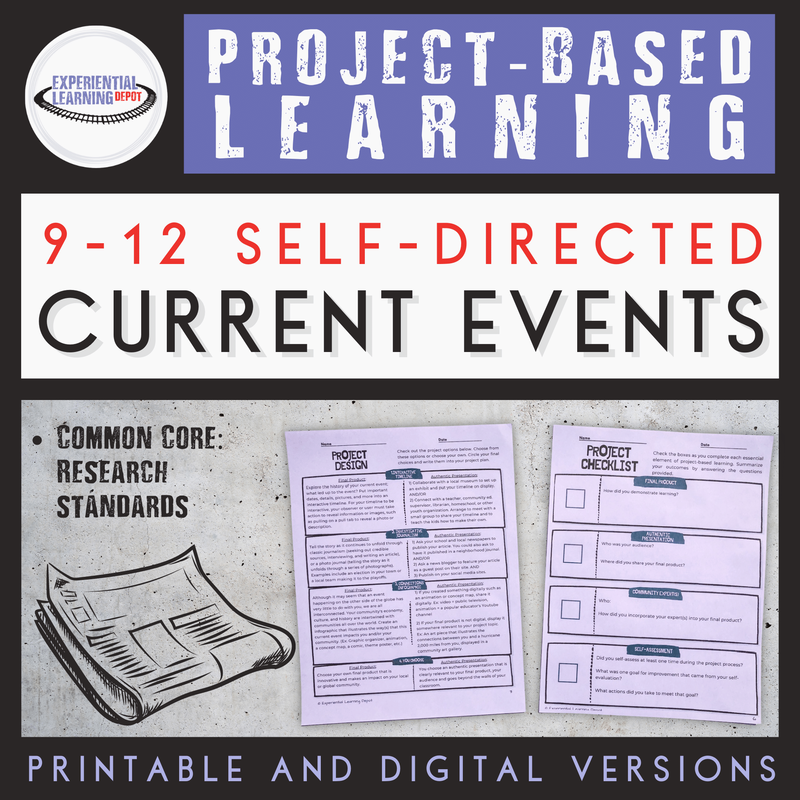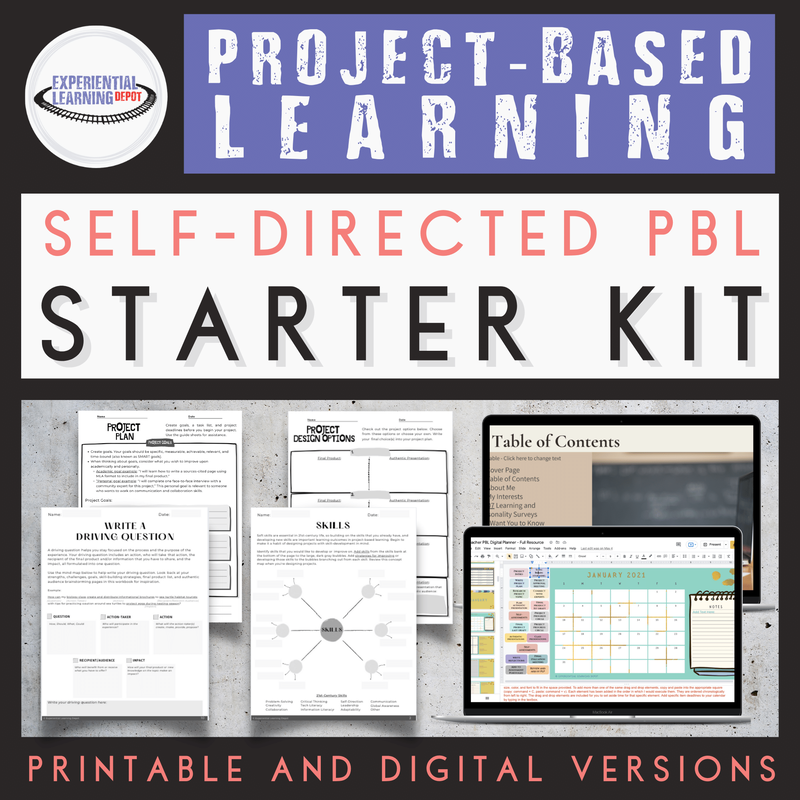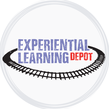|
Experiential learning resources for the innovative educator
Are worksheets good or bad? That is the question.
For those of you that follow my blog closely you have probably formulated a guess as to my answer to this question. I'm going to start by saying that I don't think worksheets are "bad". I believe that they have a place in this world, but in very very very very very small doses. There are ample alternatives to worksheets, and I hope you'll consider them.
I have used worksheets before and will continue to use them occasionally in my teaching career. However, I use them sparingly, and I use a specific style of worksheet.
When I use the word "worksheet" in this post from now on, what I am referring to is that of the "drill" variety such as pages or packets filled with the same questions over and over again that have right or wrong answers.
Someone might refer to an inquiry-based learning paper template with scaffolding questions as a "worksheet". I would not, and that is not what I am referring to here.
Why I Don't Give My Students Worksheets:
1) I would be a hypocrite.
I don't use drill variety worksheets very often for the same reasons that I became and have stayed an experiential educator. They are not in keeping with my philosophy. I talk heavily about the benefits of experiential learning in this blog. If I were to say "yes" to drill worksheets, I wouldn't be practicing what I preach. I support and promote experiential learning because I have observed the benefits. I have 13 years of experience watching how it changes lives.
2) Worksheets do not accommodate all learners.
Worksheets are a one-size-fits-all approach, and learners are not one-size-fits-all. This can leave many students confused, frustrated, and deflated. Personal learning is a popular approach to accommodating all learners needs and interests, which is at the heart of experiential learning. At a minimum, make worksheets an option, but beware that students are likely choosing worksheets because they offer concrete right or wrong answers. It's easier than having to problem-solve, work together as a team, reach out to community as a resource, as some non-worksheet learning activities would require of students. 3) Drill worksheets do not have a place in life outside of school. The only time I have ever done worksheets in my life was when I was in school. It would never come up in life; not to get a job, not to keep a job, not to plan for a family, not to plan a trip. Drill worksheets serve little purpose in life, so why do them? I'm short on time as it is. Adding busy work that serves no purpose is not something I'm going to do. Prospective employers are going to want to know if the student has a thorough understanding of the content necessary to succeed in their field. They're going to want to know if the student can work well with others, control their impulses, critically and creatively think, work independently. These 21st-century skills aren't gained by completing drill worksheets.
I have loved Ken Robinson's philosophy on this since seeing his incredible TedTalk - Do Schools Kill Creativity? This presentation blows my mind.
I am an educator who spent 10 years in the classroom and went to public school myself. I am firm believer in public education. But are we serving our students well in the current system? If you're mulling over this question in your head right now, whether schools are killing curiosity, I highly recommend reading Ken Robinson's book, Creative Schools. The book focuses on how classrooms can transform; move away from rote memorization and testing culture, and toward practices that serve 21st-century learners and ignite a passion for learning.
If you purchase this book through the affiliate link I will receive a small commission (at no cost to you). I only endorse products that I have personally used, benefited from, and support.
4) Worksheets "decontextualize" learning.
Drill worksheets are loaded with questions or problems in isolation from the whole. For example, I would get worksheets in high school chemistry that were filled with chemical equations to be solved. We would practice solving these equations with worksheets yet I had no idea how those formulas applied to chemistry or what they really meant. I wasn't learning chemistry. I was learning how to regurgitate information that had little meaning to me, which ultimately served me no purpose. I think the Alfie Kohn quote below is referring to "schooling" in general, but it applies to drill worksheets, which tend to be tasks isolated from a bigger picture. Worksheets perpetuate this problem. By hammering discrete units, students are collecting piles of bricks but not building a functional home.
5) Worksheets do not ignite a passion for learning.
Worksheets are boring! Some may say, "who cares, students don't have to like it. That's the real-world. Life isn't always fun and games. Better to prepare them for that now." Students can quickly lose their passion for learning if worksheets are the norm. What I want for my students is to love learning. You will never have students seeking you out years down the line to share with you the incredible impact that your worksheets have had on their lives. They will thank you for building a relationship with them, creating opportunities for them to pursue their interests, challenging them, and giving them choice because it's those things that make a real and important impact on their lives. I think it's important to note here that if you're struggling with worksheet completion, such as those given out as homework, this is probably your reason. You're losing students because they aren't interested. Something to keep in mind.
6) Worksheets train students for careers of the past.
Drill style worksheets don't teach Important 21st-century skills such as tech literacy, creativity, social/emotional skills, collaboration, communication, teamwork, critical thinking, and other skills employers of today desire. Rote memorization is no longer a skill worth spending a lot of time cultivating because information is so readily available. This practice might have made sense 50 years ago. Now drill worksheets are an archaic practice. Worksheet Alternatives:
I have talked to a lot of teachers and parents that defend drill worksheets. Below I have listed some common answers I get from parents and teachers when asked why they give out or support the use of drill worksheets. I have included some alternatives to satisfy those justifications:
1) " I assign worksheets to students as content review."
Many teachers give worksheets to students with the intention of hammering in an idea or concept covered that day in class or in that unit. What's the problem with that? Unless that content is tied to life, the real-world, or something personally meaningful to the student, much of that content won't be remembered long-term, regardless of how many times they repeat repeat repeat. They may remember it until the test if you're lucky. What to do instead: If your purpose for using review worksheets is to help students memorize content, consider doing an activity that will leave a lasting impression. Then students will not only remember the content long enough to pass a test, but may remember it 20 years later, and say to themselves, "Hey! That's an example of commensalism! I remember that from that ecology vocab scavenger hunt we did in Ms. Segar's bio class! Remember that egret we saw sitting on that cow?" (Free scavenger hunt). As an experiential educator, I believe "leaving a lasting impression" requires that the learner be involved in some way. A scavenger hunt where students can observe and experience the ecology vocab in action is more memorable than copying definitions onto a worksheet. Even a combination of an activity and a worksheet would be more effective than a worksheet alone (if you insist that the worksheet is necessary). 2) "I sometimes give out worksheets as a formative assessment." Sometimes teachers just want to see if students know the material that they've been taught. I do understand why teachers would do this. It's quick, it's easy, it's cut and dry. What is the problem with that? The problem is that drills are typically in isolation from the whole. It's difficult to see how drill problems connect with the an overarching concept. You often miss misconceptions that students have developed, and you wouldn't necessarily know if students understand the concepts or if they are just great at memorization. What to do instead: Try other versions of formative assessments. I get a lot of my from the book "Science Formative Assessment" by Page Kelly. It gives a ton of quick, easy formative assessment strategies that are designed to reveal where students are having trouble or forming misconceptions. It says it is geared toward science concepts, but I have found the formative assessments in the book to be pretty versatile. There are so many creative formative assessment strategies out there. Do a simple Google search or head to Pinterest. You can even simply ask students to write a reflection, which is what I do with my students, as reflection is an important part of experiential learning. 3) "Worksheets give students practice." I hear this one a lot, and understand why someone might say this. I hear, "improving muscle memory" as a point for worksheets often. A drill worksheet likely does give students practice, but what is it that they're practicing exactly, and is it something we want them practicing? What is the problem with that? What students are practicing is memorization for the purpose of passing a test. This just isn't necessary anymore. They have access to information all of the time. The internet is not going away. I would argue that using worksheets to "practice" is doing more harm than good. If students are doing drills for practice, and they are doing the drills incorrectly or don't understand the material, the "practice" is just reinforcing misconceptions and confusions. And muscle memory is improving slowly, if at all, if what students are repeating has no context. What to do instead: Again, if the purpose for drilling is to get students to memorize the information, try making it experiential. As Ainslie Johnstone mentions in an article about muscle memory, "you'll build muscle memory much faster if you trade mindless repetition for strategic habits that give those neural connections a workout." So consider taking those drill-style worksheets and adapting them to include real-world context. There are so many great ways to do this like inviting speakers to talk about their research, taking students on field trips, collaborating with the community,inquiry-based learning, problem-based learning, project-based learning, STEM, STEAM, maker education with design thinking and more. These are all effective strategies for practicing and understanding content, while providing opportunities for students to build important life skills. This is much easier said than done for some teachers. I have math teachers in mind here. For experiential math teachers, check out a previous post here written by Tony Geraci. He is a high school math teacher that incorporates 21st-century skill-building into his curriculum.
4) "Sometimes kids have to do things they don't want to do. That's life."
I hear this one a lot, "That's life", as if drills prepare students for life. I myself have said this before, especially when I'm frustrated with my students and their lack of productivity. What's the problem with this? I have to take a step back and remember that life is hard as it is, especially for teenagers. My students have experienced a lot in their short lives. They are tougher and more responsible than they should have to be at 16-years-old. Worksheets are also not a real-world reality. Students will unlikely encounter a job in which they have to sit at a desk and fill out worksheets for the purpose of rote memorization. What to do instead: There are many things that our students do in life that they don't like. You don't need worksheets to teach them about hardship or work ethic. Encourage students to prepare for the real-world by getting a job or starting a business. Facilitate learning experiences that are student-directed so they can practice desired career skills. Problem-based learning is a great example activity. Promote community relationships with your students such as starting a mentorship program or organizing service learning experiences.
5) "Worksheets are quick and easy to plan and implement. Sometimes I just need a break from rigorous lesson planning."
This is completely understandable. Teacher burnout is real and powerful. Sometimes teachers just need a breather. There is no problem with that. What to do instead? Like I said, I get it. If you must give out worksheets to give yourself a break, try to do it sparingly. There are other ways to take breaks that are better for everyone. Try something fun or student-directed to take the burden off of you and place the responsibility on your students. It's a win win situation.
As you make your goals for this year, consider what your students really need from you.
What kind of people do you want your students to become? How do you want your students to perceive learning? Does your current approach support your teaching goals? Are drill worksheets working for you, and more importantly, are your students getting anything out of them? If your answers to those questions revolve around the theme of "I want my students to have more authentic, engaging, and effective learning experiences moving forward", then check out my free experiential learning tools to get your rolling.
Looking for resources to replace worksheets? Try these:
Helpful Blog Posts:
Let's work together!
Click the links below to learn more: Let's Get Social! Experiential Learning Depot on TPT, Pinterest and Instagram for more on experiential education.
Did you know there is an experiential learning Facebook community?
Observe. Question. Explore. Share.
8 Comments
5/24/2019 12:32:29 am
My favorite reason you wrote about is this one: Worksheets do not ignite a passion for learning. "Worksheets do not ignite a passion for learning." I am a huge believer in making learning fun and meaningful for students. I am a person with many passions and I turned this into a project for my students...I had them do Passion Projects every year...just amazing! Wrote one of my blogs on this and put it all together in a TpT product too. One of the best things I ever did as a teacher!
Reply
Experiential Learning Depot (Sara Segar)
5/24/2019 08:49:25 am
I agree completely. Having a love for learning is important for developing lifelong learners, one of my greatest goals as an educator. I think fun is great, but your point about making learning "meaningful" is so critical! Without that, what is the purpose? And if you're not clear on your purpose, don't do it! Thank you so much for your comment!
Reply
Arek Hautaluoma
10/9/2020 02:03:49 pm
I don't agree personally...had College profs who don't give any practical worksheets or assignments, then expect you to understand the material based on their lecture. I don't want to do some poorly planned 'fun' activity to learn something, I want to practice practically with questions increasing in difficulty.
Reply
Sara
10/9/2020 10:31:35 pm
Thank you for the comment, Arek. I am always up for hearing about others’ experiences and perspectives.
Reply
6/2/2022 12:09:31 am
This article is very informative, I enjoyed reading it
Reply
Jim
6/16/2023 07:45:59 am
You honestly have no idea. No wonder kids are so dumb these days, they dont practice the skill. Wake up and smell the cheese idiot.
Reply
Sara Segar (Experiential Learning Depot)
10/31/2023 02:29:35 pm
There are some skills that worksheets simply can't teach such as common courtesy, respect, and interpersonal awareness (to name a few).
Reply
Your comment will be posted after it is approved.
Leave a Reply. |
Blog IntentTo provide innovative educational resources for educators, parents, and students, that go beyond lecture and worksheets. AuthorSara Segar, experiential life-science educator and advisor, curriculum writer, and mother of two. Categories
All
|















 RSS Feed
RSS Feed